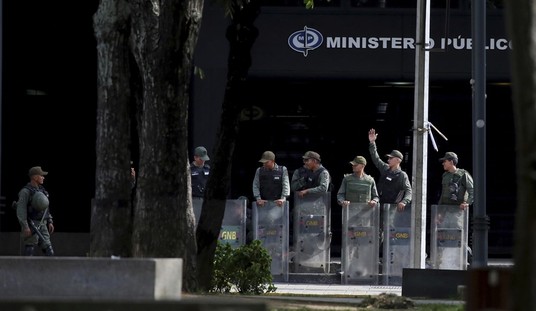Gordon Kromberg: remember that name. Mr. Kromberg is a federal prosecutor who has investigated several radical Muslim groups in Virginia. In 2006, for example, Mr. Kromberg won a conviction against Sami Al-Arian, a Kuwaiti-born Palestinian activist, who pleaded guilty to aiding Palestinian Islamic Jihad, a Damascus-based terrorist group that has been responsible for dozens of bombings and scores of fatalities since the 1990s.
“Well, bully for Gordon Kromberg,” you might be thinking, “at last we can see some good come from the expenditure of the tax-payer’s money. What the world needs is fewer supporters of terrorists groups like Palestinian Islamic Jihad walking the streets.”
Something like that, I confess, flitted through my mind when I first heard about Mr. Kromberg’s activities on behalf of the public weal: “Good job, Gordon!” more or less summed up my attitude. He didn’t make all of the 17 charges against Sami Al-Arian stick, but at least he put him behind bars for a while.
A little background. In 2003, Sami Al-Arian was accused of heading up a domestic cell of an organization that routinely murders people. His lawyers negotiated a deal in which he pleaded guilty to a lesser charge. Judge James S. Moody Jr. sentenced Al-Arian to the maximum allowed under the sentencing guidelines. Responding to the objection that Al-Arian was merely attempting to aid women and children who had suffered in the Middle East, Judge Moody said that “The only connection to widows and orphans is that you create them.”
Fast forward to 2008. Lawyers for Sami Al-Arian are now attempting to turn the tables on Gordon Kromberg, accusing him, as an article in The New York Sun reports, of being “relentless” and “displaying his personal animus” in his pursuit of Islamic radicals.
Let me pause to declare an interest here. When it comes to fighting terrorism, I actually prefer prosecutors who exhibit the terrier instinct: I want them to be relentless, and if “personal animus”–i.e., a settled dislike of people who blow up school buses and otherwise maim and murder innocent people–helps nurture the relentlessness, so much the better.
That, anyway, is my feeling about the matter. But we live in an age in which soft jihad is on the rise–jihad that pursues its aim of establishing Islamic law worldwide not only by plowing jumbo jets into skyscrapers but also by using and abusing the institutions of democratic society in order to undermine those institutions. The legal system, for example, is used not as a tool to maintain the rule of law, but as a sort of sophistical stun-gun to stymie it. Thus we are treated to the spectacle of “human-rights” commissions who employ anti-discrimination legislation to silence journalists who have the temerity to call attention to the actions and goals of radical Muslims. And thus we find lawyers for Sami Al-Arian asking a federal judge to ponder the question of whether “anti-Muslim bias” fuelled the government’s case against him.
Of course, it’s not “anti-Muslim” bias that is at issue. If you want to use the language of bias at all, then what we are talking about is a “bias” against supporting terrorism. But really it’s not a question of “bias”–a word that suggests an irrational or unfounded dislike–but rather an entirely rational and well-founded hatred of evil.
Yes, yes, I know that “hatred” is not an OK, politically correct word today. We even have a whole new category of malefaction called “hate crimes.” What does that tell us?
It used to be that one could distinguish frankly between good and evil, affirming one, hating and rejecting the other. It has been one of the greatest triumphs of soft jihad to blur this distinction. It accomplishes the confusion by encouraging us to substitute the language of “bias talk” for the language of forthright moral discrimination. After a while the main issue–the Israeli school children who had been blown to bits in bus a bombing, for example–recedes to a limbo of endless pettifogging adjudication. Meanwhile, the stupefying mantras of multiculturalism–“diversity,” “bias,” “prejudice,” and the rest–assume center stage and we are lulled into believing, or half-believing, that somehow we are to blame for the depredations that take our very existence as their justification.









Join the conversation as a VIP Member